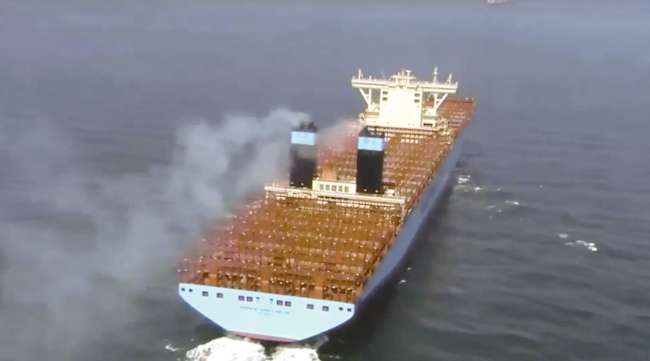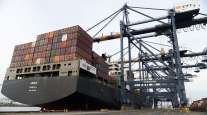Senior Reporter
CEOs Raise Concerns About Availability of Diesel and Other Fuels in 2020 Because of IMO Bunker Fuel Mandate

A group of industry stakeholders is urging the Trump administration to take action to ensure adequate supplies of fuel for freight and air travel and home heating in advance of a change in the type of fuel the maritime industry will use beginning next year.
“We believe there are tools at the administration’s disposal that can help ensure a smooth transition and protect American trucking companies, air transportation and home heating fuel consumers,” the leaders of three industry groups said in a May 13 letter sent to five Trump administration officials and the head of the U.S. Coast Guard regarding the directive from the International Maritime Organization to shift the cargo shipping and cruise line industries from so-called bunker fuel to ultra-low sulfur diesel. In part because of its lower cost, the heavy, thick fuel has been used in the maritime industry for years. However, the fuel has been criticized as being heavy in pollutants. Effectively, bunker fuel is what’s left over after oil has been refined into diesel, gasoline or jet fuel.

Spear
The authors of the letter, American Trucking Associations President and CEO Chris Spear, Airlines for America CEO Nicholas Calio and New England Fuel Institute CEO Sean Cota, wrote that the U.S. must “prepare for any and all outcomes as it relates to the IMO 2020 transition, including the possibility of market disruptions.”
In the letter, which was sent to Energy Secretary Rick Perry, Transportation Secretary Elaine Chao, National Security Advisor John Bolton, National Economic Council Director Larry Kudlow, EPA Administrator Andrew Wheeler and Coast Guard Commandant Admiral Karl Schultz, the executives made several recommendations to aid the transition, including:

Calio
- Solicit feedback from stakeholder industries, including the transportation and home heating fuel sectors and their respective trade associations, throughout the IMO transition.
- Immediately restore the Northeast Home Heating Oil Reserve from 1 million barrels to its statutory limit of 2 million barrels through the end of 2020 to provide a backstop in the unlikely event of a market dislocation. A one-time exchange or sale of crude oil from the Strategic Petroleum Reserve (SPR) during a nonpeak period could replenish the Northeast reserve.
- Stand ready to release fuel from the Northeast Home Heating Oil Reserve and, if appropriate, additional oil from the SPR in order to address market disruptions.
- Monitor the actions of OPEC throughout the IMO 2020 transitions to ensure any changes to the cartel’s output do not exacerbate markets.
- Continue to improve outreach and communications with industry stakeholders during the initial years of rule implementation.
- Take additional steps as necessary to preserve American economic and energy security interests and minimize consumer impacts, while also fulfilling the nation’s obligation to implement and enforce the IMO 2020 rule. This may include, but is not limited to, actions to lower the cost of transporting crude oil and refined products.
In 2016, the United Nations’ International Maritime Organization directed the maritime industry to significantly decrease sulfur emissions from ships by 2020; by that year, the allowable sulfur content in marine fuel must drop from 3.5% to 0.5% — seven times lower than it is now.
To meet the requirements of the new mandate, the majority of shipping companies will significantly increase the use of diesel.

Cota
According to a 2017 survey of shipping companies from investment bank UBS, 74% said they will switch to diesel, while the rest either plan to install equipment to remove sulfur or convert their ships to liquefied natural gas.
The shipping industry uses an estimated 4 million barrels of fuel each day, and the letter says “there is consensus, however, that our industries will be negatively affected by the IMO 2020 pricing pressure.” The letter cites a U.S. Energy Information Administration report that says the price of diesel in mid-to-late 2019 and early 2020 could increase by as much as 28 cents per gallon for diesel and 18 cents per gallon for jet fuel.
“The change in sulfur limits has wide-ranging repercussions for the global refining and shipping industries as well for petroleum supply, demand, trade flows and prices,” EIA said in the report. “EIA anticipates that the effects on petroleum prices, will be most acute in 2020, and the effects on prices will be moderate after that.”
This planned transition comes at a time when the world economy is growing and the maritime and trucking industries are at near peak capacity. The letter does strike an optimistic tone in one paragraph: “We remain hopeful that we will experience an uneventful transition and minimal market disruptions.”




